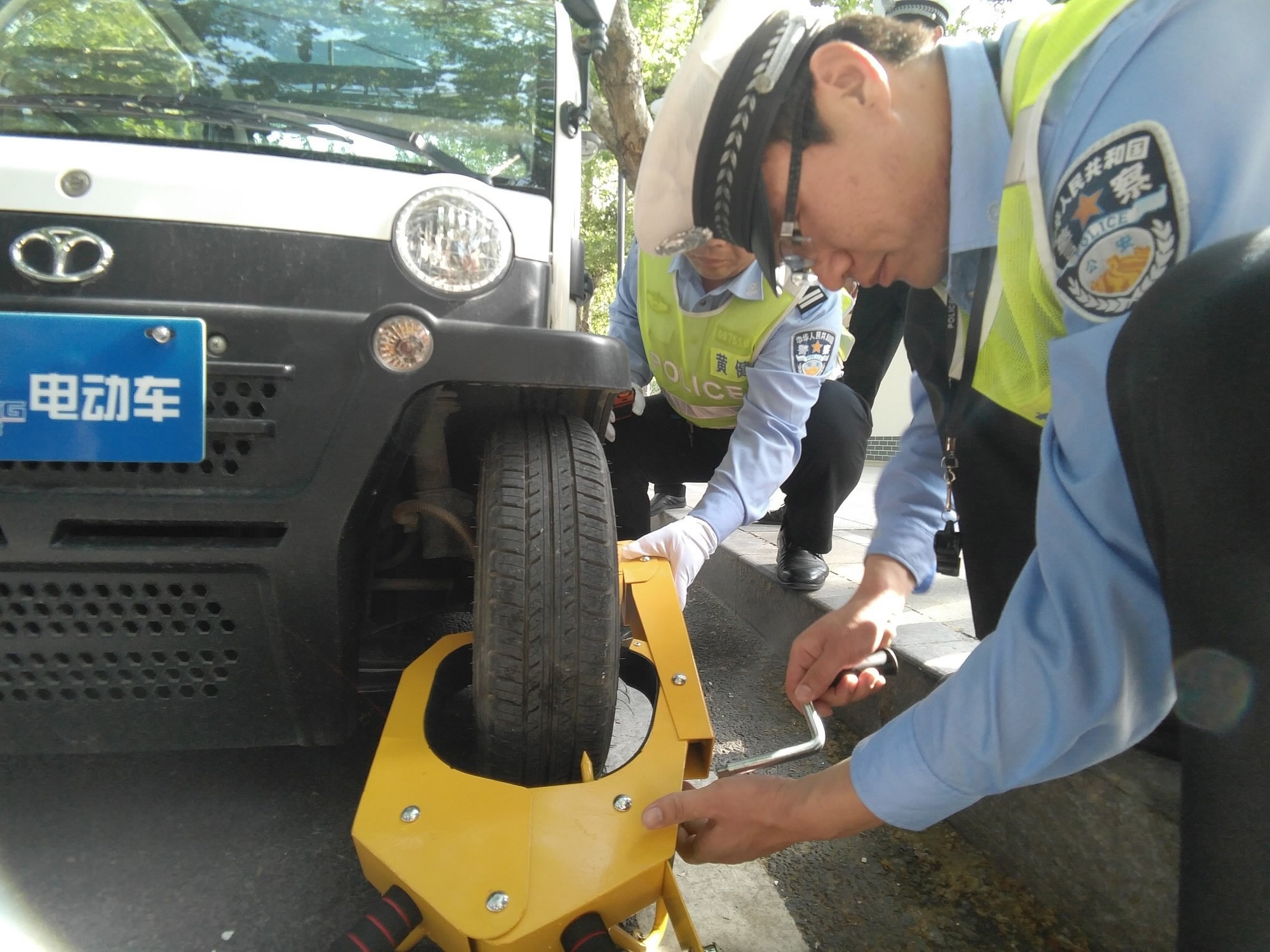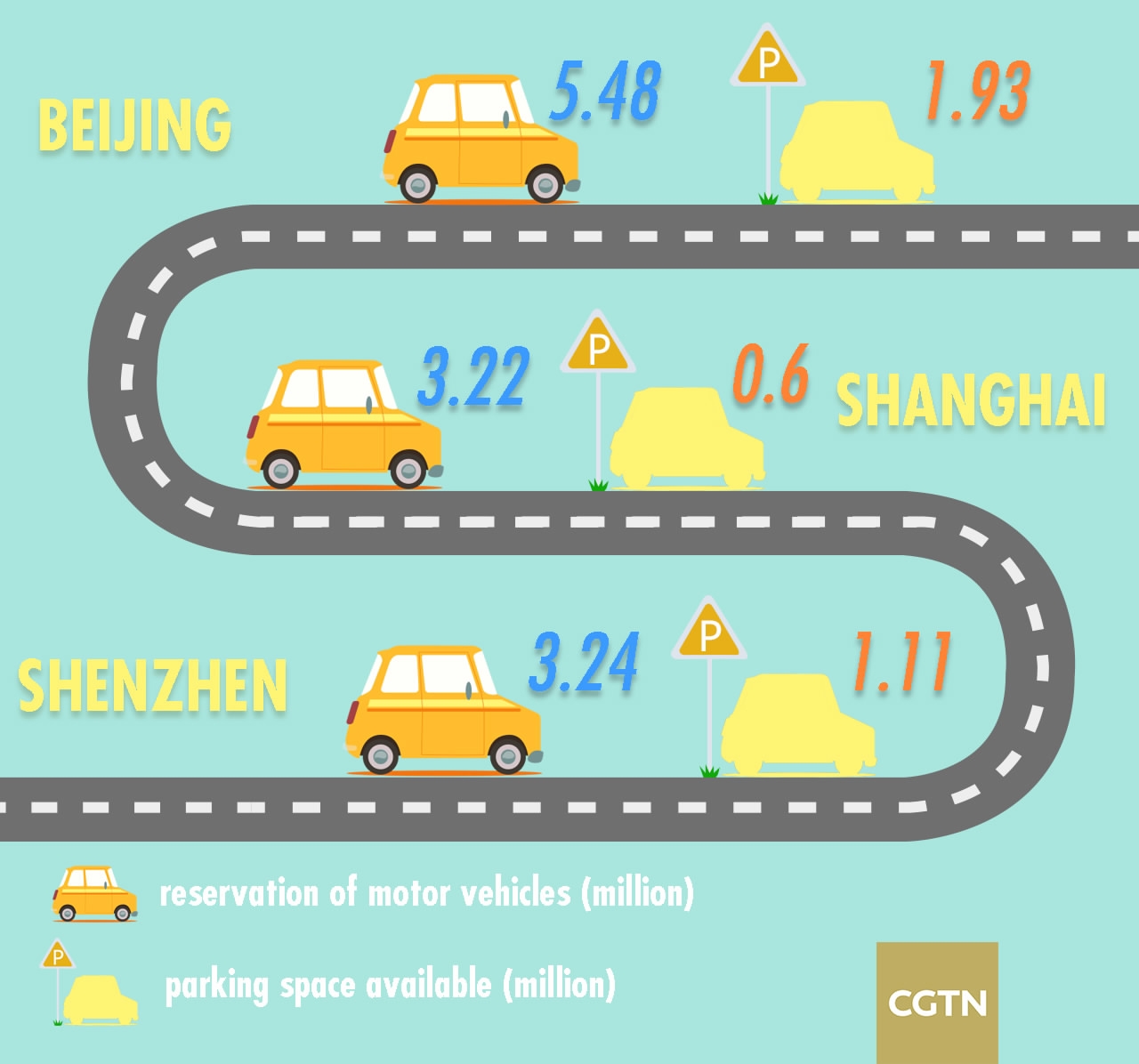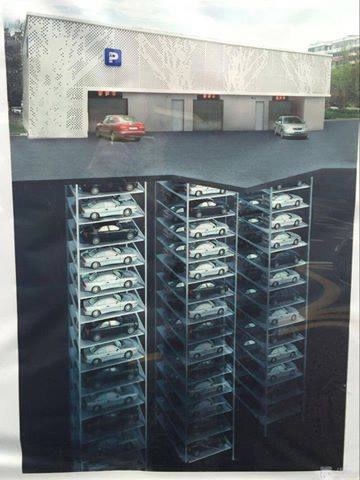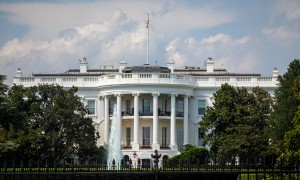Car owners all over the world know the frustration that a lack of parking spaces can cause, but in Chinese megacities the issue is becoming especially troublesome thanks to a significant growth in car ownership in recent years.
Despite a total of 400 trillion yuan (58.85 trillion US dollars) having been spent in parking fees last year, Chinese drivers still find it difficult to pull over in urban areas, with many of them forced to run the risk of a penalty by parking illegally on sidewalks, pedestrian squares, bicycle lanes, and even bus stops.

Traffic police in east China’s Shandong Province seen clamping the wheels of illegally-parked tricycles and scooters / CGTN Picture
A report by THUPDi in association with the China Urban Transport Committee shows that Beijing has 4.4 million private vehicles, but only 1.93 million parking spaces. Similarly, the southern city of Shenzhen has 3.24 million cars competing for just 1.11 million available spaces.
And in Shanghai the situation is even more dire, with just 600,000 parking spaces for a car reservation similar to that of Shenzhen, meaning there are five times as many vehicles as spaces.

Comparing the numbers of motor vehicles and available parking spaces in three of China's largest cities / CGTN Picture
Some major cities in China have taken measures to restrict car purchases and have created tens of thousands of parking spaces over the past years. However, finding additional space to do so in China's already dense cities is challenging and expensive.
Last year, China’s deepest underground parking lot opened to drivers in Hangzhou, eastern Zhejiang Province. The facility with three parking areas can accommodate 114 cars. Drivers simply park their cars into a vehicle-lifting device, which transports the car into its designated parking bay within 30 seconds.

China’s deepest underground parking lot opened to drivers in Hangzhou, Zhejiang Province in June 2016. / CGTN Picture
Other cities are trying to go digital to cope with the problem. In April 2017, the “Shanghai Parking” mobile app was launched, allowing drivers in the city to see fees and opening hours of more than 3,300 parking lots. By making information on parking spaces public, the app aims to help people find places where they can leave their vehicles right away, instead of going to parking garages that may already be full.







